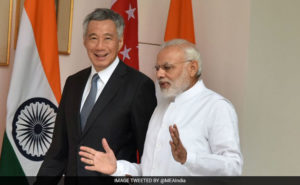
Government is set to unveil an ambitious PAN activity monitoring and analysis software tool that will enable Income Tax department to check transactions history of a person country-wide and help sleuths in effective tracking of black money trail.
The digital and smart platform is called the Income Tax Business Application-Permanent Account Number (ITBA-PAN) and is currently being put to final tests by a special team of tax sleuths and business software analysts at a facility in the national capital.
The new software tool will enable the taxman to view, in a chronological order, the entire “PAN life cycle summary” or to simply say transactions history of an individual or entity where a PAN number has been quoted, in any part of the country.
The project is expected to be activated by the end of this month by the Finance Ministry and will also enable the tax department and its two intermediary organisations–NSDL and UTIITSL– to allocate a fresh PAN number and subsequently issue a new card in 48 hours flat as compared to the about 15 days time taken currently.
The operationalisation of the project assumes significance as Finance Minister Arun Jaitley had recently said that the government is at an “advanced stage in considering the requirement of furnishing PAN card details if cash transactions beyond a certain limit are undertaken.”
The department, in order to enhance its capabilities to better track large value transactions in the country, has brought the ITBA-PAN portal and has for the same has also closed down its “legacy” and the existing Assessee Information System (AIS) early this month which till now used to hold the PAN database.
The new platform, according to an official proposal accessed by PTI, will also allow the taxman to view and capture various events of an assessee like “death, liquidation, dissolution, de-merger, merger, acquisition, fake PAN or amalgamation of PAN” in a specific or general case in an event of any investigation to be carried out in a case of black money or tax evasion.
“The ambitious project will be rolled out soon and the I-T department has already migrated all the PAN data last week from the old system to the new one. With this project going operational, PAN will become a unique identifying database in the real sense all across the country,” a senior official said today.
The ITBA-PAN software will also allow a PAN holder to request for deletion or de-activation of his or her PAN and it will send an electronic and digitally signed “intimation letter” in this regard to the concerned assessee.
The soon-to-be launched platform will also allow an entity to activate a wrongly deleted or de-activated PAN number.
In order to provide better services to taxpayers, the platform will allow for a smooth computer-based transfer of an individual’s PAN number in case they are transferred or re-located from one place to the other.
PAN is a ten-digit alphanumeric number issued in form of a laminated card by the Income Tax department.
It is also a national identification number of the taxpayer which has to be mandatorily quoted on the return of income and in all correspondences with the department.
Read more at: http://economictimes.indiatimes.com/articleshow/49337498.cms





